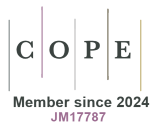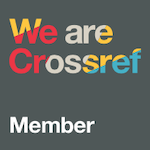Emicizumab in hemophilia A with inhibitors: clinical and economic impact of its use in a Cuban patient
DOI:
https://doi.org/10.33393/ao.2022.2438Keywords:
Costs, Emicizumab, Hemophilia, Inhibitor, NovoSevenAbstract
Introduction: The management of a patient with severe hemophilia A with inhibitors is a challenge for any healthcare professional. The present analysis shows the clinical and economic impact of the therapeutic approach in the most critical patient of the Cuban Hemophilia Cohort.
Objective: To evaluate the economic and clinical impact of the implementation of Emicizumab therapy in the first Cuban patient.
Case presentation: Adult patient who started to use recombinant activated factor VII episodically during adolescence when he was diagnosed with the presence of high-responding antibodies against factor VIII. During the years that he used this medication, he had recorded between 95 and 105 bleeds annually. In 2018, he presented with severe hemoperitoneum and was admitted to the intensive care unit with high doses of recombinant factor VII activated, multiple transfusions of packed red blood cells, and other care typical of a critically ill patient; his evolution was satisfactory. He started emicizumab prophylaxis 7 months after this event and is currently on Week 133 of treatment. He has not presented with further bleeding, nor has he reported adverse reactions to this treatment. The biannual cost savings for on-demand treatment and prophylaxis have been US $792,509.24.
Conclusions: Emicizumab prophylaxis improved the patient’s quality of life and that of his family. From the perspective of the Cuban health system, the use of emicizumab in this clinical case was satisfactory and its experience will be analyzed in new patients.
References
- Peyvandi F, Garagiola I, Young G. The past and future of haemophilia: diagnosis, treatments, and its complications. Lancet. 2016;388(10040):187-197. https://doi.org/10.1016/S0140-6736(15)01123-X PMID:26897598 DOI: https://doi.org/10.1016/S0140-6736(15)01123-X
- Blanchette VS, Srivastava A. Definitions in hemophilia: resolved and unresolved issues. Semin Thromb Hemost. 2015;41(8):819-825. https://doi.org/10.1055/s-0035-1564800 PMID:26479892 DOI: https://doi.org/10.1055/s-0035-1564800
- Srivastava A, Santagostino E, Dougall A, et al. WFH guidelines for the management of hemophilia, 3rd edition. Haemophilia. 2020 Aug 3;26(S6):1-158. Online: https://onlinelibrary.wiley.com/doi/10.1111/hae.14046. Accessed May 2022. DOI: https://doi.org/10.1111/hae.14046
- Ljung R, Auerswald G, Benson G, et al. Inhibitors in haemophilia A and B: management of bleeds, inhibitor eradication and strategies for difficult-to-treat patients. Eur J Haematol. 2019;102(2):111-122. https://doi.org/10.1111/ejh.13193 PMID:30411401 DOI: https://doi.org/10.1111/ejh.13193
- Oldenburg J, Mahlangu JN, Bujan W, et al. The effect of emicizumab prophylaxis on health-related outcomes in persons with haemophilia A with inhibitors: HAVEN 1 Study. Haemophilia. 2019;25(1):33-44. https://doi.org/10.1111/hae.13618PMID:30427582 DOI: https://doi.org/10.1111/hae.13618
- Oldenburg J, Mahlangu JN, Kim B, et al. Emicizumab prophylaxis in hemophilia A with inhibitors. N Engl J Med. 2017;377(9):809-818. https://doi.org/10.1056/NEJMoa1703068PMID:28691557 DOI: https://doi.org/10.1056/NEJMoa1703068
- Mahlangu J, Oldenburg J, Paz-Priel I, et al. Emicizumab prophylaxis in patients who have hemophilia A without inhibitors. N Engl J Med. 2018;379(9):811-822. https://doi.org/10.1056/NEJMoa1803550PMID:30157389 DOI: https://doi.org/10.1056/NEJMoa1803550
- Hedner U. Recombinant activated factor VII: 30 years of research and innovation. Blood Rev. 2015;29(S1)(suppl 1):S4-S8. https://doi.org/10.1016/S0268-960X(15)30002-3 PMID:26073368 DOI: https://doi.org/10.1016/S0268-960X(15)30002-3
- Linari S, Castaman G. Concomitant use of rFVIIa and emicizumab in people with hemophilia A with inhibitors: current perspectives and emerging clinical evidence. Ther Clin Risk Manag. 2020;16:461-469. https://doi.org/10.2147/TCRM.S205310 PMID:32547043 DOI: https://doi.org/10.2147/TCRM.S205310
- Almagro D, Agramonte O, Castillo D, Zamora Y, Ballester JM. Experience with a single dose of recombinant activated factor VII for the management of mild-to-moderate bleeds in haemophilia. Haemophilia. 2011;17(2):322-323. https://doi.org/10.1111/j.1365-2516.2010.02403.x PMID:21332884 DOI: https://doi.org/10.1111/j.1365-2516.2010.02403.x
- Pipe SW, Shima M, Lehle M, et al. Efficacy, safety, and pharmacokinetics of emicizumab prophylaxis given every 4 weeks in people with haemophilia A (HAVEN 4): a multicentre, open-label, non-randomised phase 3 study. Lancet Haematol. 2019;6(6):e295-e305. https://doi.org/10.1016/S2352-3026(19)30054-7 PMID:31003963 DOI: https://doi.org/10.1016/S2352-3026(19)30054-7
- Knight T, Callaghan MU. The role of emicizumab, a bispecific factor IXa- and factor X-directed antibody, for the prevention of bleeding episodes in patients with hemophilia A. Ther Adv Hematol. 2018;9(10):319-334. http://journals.sagepub.com/doi/10.1177/2040620718799997 https://doi.org/10.1177/2040620718799997 PMID:30344994 DOI: https://doi.org/10.1177/2040620718799997
- Solís C, Arrioja S, Manzano A. Índice de Barthel (IB): Un instrumento esencial para la evaluación funcional y la rehabilitación. Plast y restauración. 2005;4:1-6. Online http://www.medigraphic.com/pdfs/plasticidad/prn-2005/prn051_2l.pdf. Accessed May 2022.
- Pokras SM, Petrilla AA, Weatherall J, Lee WC. The economics of inpatient on-demand treatment for haemophilia with high-responding inhibitors: a US retrospective data analysis. Haemophilia. 2012;18(2):284-290. https://doi.org/10.1111/j.1365-2516.2011.02623.x PMID:21812862 DOI: https://doi.org/10.1111/j.1365-2516.2011.02623.x
- Zhou ZY, Raimundo K, Patel AM, et al. Model of short- and long-term outcomes of emicizumab prophylaxis treatment for persons with hemophilia A. J Manag Care Spec Pharm. 2020;26(9):1109-1120. https://doi.org/10.18553/jmcp.2020.19406 PMID:32452276 DOI: https://doi.org/10.18553/jmcp.2020.19406









